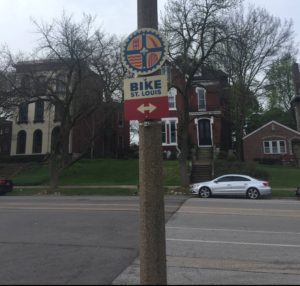
A photo taken on my run this morning.
One of the first lessons I learned as a consultant many years ago is that every community has its own public decision-making process. What flies by with no commentary in one city can make for contentious late-evening public input and visceral debate in another. Whether it’s advancing a transportation project or making changes to a comprehensive plan, how you engage the community, build support from local government staff and gain approval from elected officials is different from place to place. A successful approach in one city can fall flat in another.
Every day, I am learning that message about the intricacies of moving projects forward in Pinellas County and Tampa Bay. We have 25 local governments in Pinellas and multiple counties in a dynamic region that is growing increasingly frustrated and impatient with its transportation situation. There is a lot to learn about culture, leadership style and protocols to strengthen the partnerships that help things go in the right direction.
Yet there are some proven ways to introduce new ideas and get valuable community input to make those ideas better so they can work in the community. Building trust starts with clear and open communication. It continues with a willingness to hear concerns and adapt a plan or project to address those concerns while keeping the goals in mind. Quick feedback, responding openly to questions and sharing data that furthers understanding is essential to keeping people and agencies connected to maintain a productive working relationship. Community input is a big factor in the “reset” for the Tampa Bay Express project announced by the Florida Department of Transportation, and the desire to learn from how another community has responded to similar concerns over a major highway project prompted the department to  look to St. Louis, Mo., as featured in this recent story by the Tampa Bay Times.
look to St. Louis, Mo., as featured in this recent story by the Tampa Bay Times.
Today is the first day of a two-day peer exchange trip to St. Louis for a learning opportunity, with about 20 people, including citizens, agency staff and elected officials from Tampa Bay, who are traveling to the Gateway City. The trip is part of a federal grant awarded to the Florida Department of Transportation to learn about how officials addressed community concerns and built support for transportation improvements in the I-64 corridor. The focus will be less on the specific project in Missouri and more on the process of how the Missouri state DOT (MoDOT), the MPO (East-West Gateway Coordinating Council) and other partners worked with affected neighborhoods, other constituents and each other to balance different needs and find common ground to proceed.
Joining me from Pinellas County are County Commissioner and Forward Pinellas Board Chairman John Morroni, Clearwater Regional Chamber of Commerce Government Affairs Vice President Zachary Thorn, Pinellas Realtors Association Director of Governmental Affairs Joe Farrell, and Pinellas Suncoast Transit Authority Board Member and Local Coordinating Board Vice Chair Brian Scott. Other participants represent Hillsborough and Pasco County, FDOT and the Tampa Bay Area Regional Transportation Authority.
Our work will entail project briefings by key agency staff, field visits, and conversations with local community interests from the affected neighborhoods. We’ll learn about how the East-West Gateway Coordinating Council works with the community and agency partners on multimodal transportation initiatives, how MoDOT advances projects in partnership with the community, and how the community feels about the project and its outcomes in their neighborhoods.
I’ll post updates on Twitter and Facebook during our two days of meetings and field visits, and will prepare a summary of key observations and lessons learned upon our return to Tampa Bay. As we continue to work with FDOT on the Tampa Bay Express and other regional multimodal transportation projects, we will seek ways to apply the lessons learned from St. Louis here in Tampa Bay.








